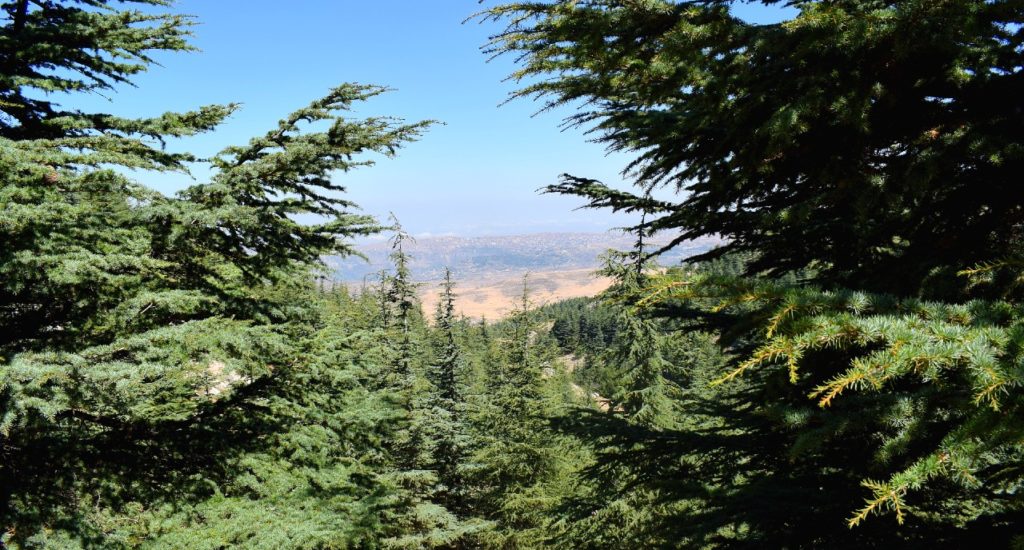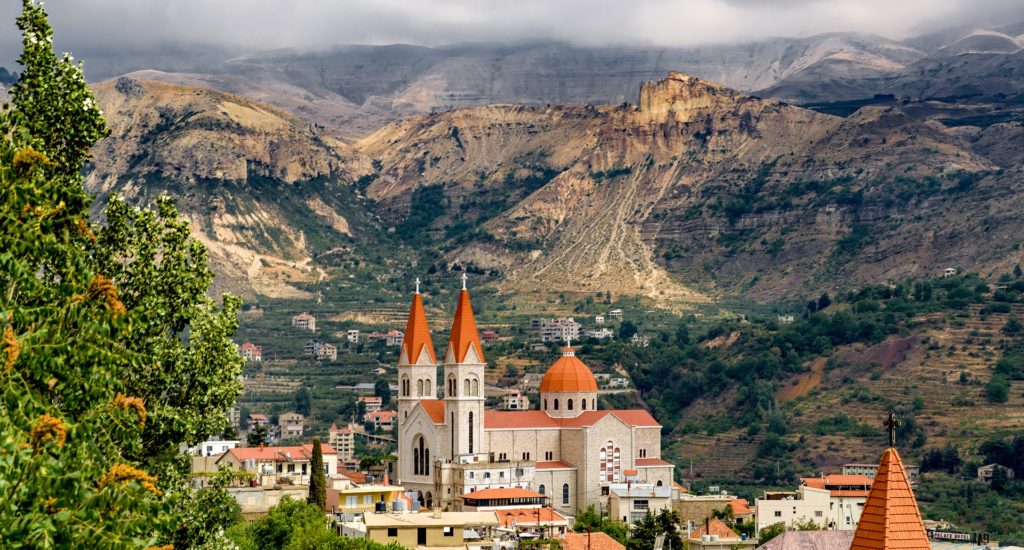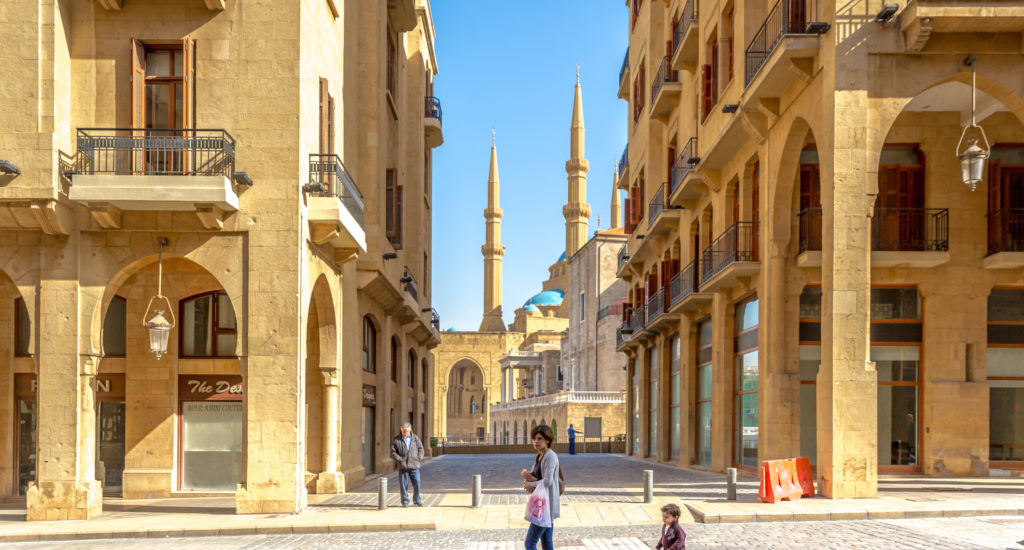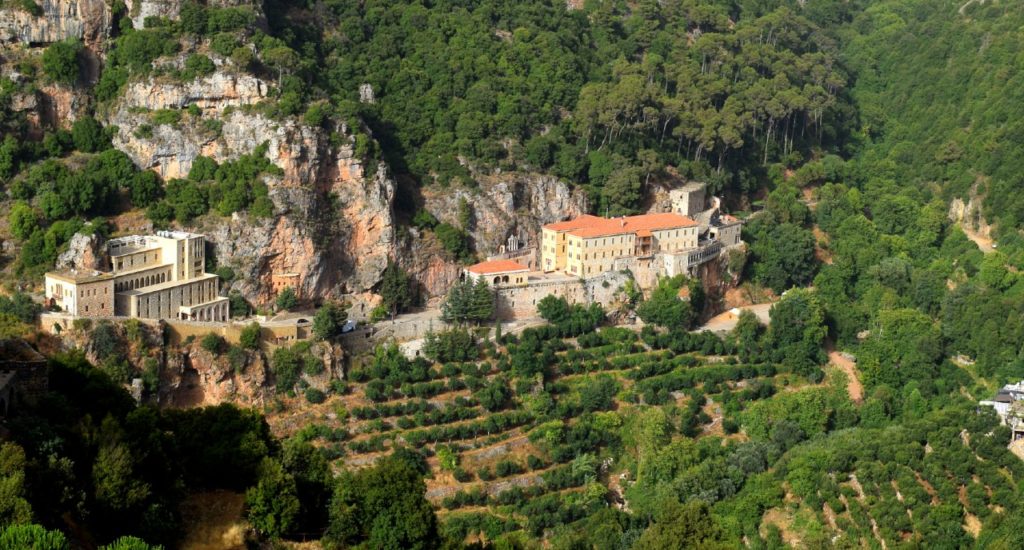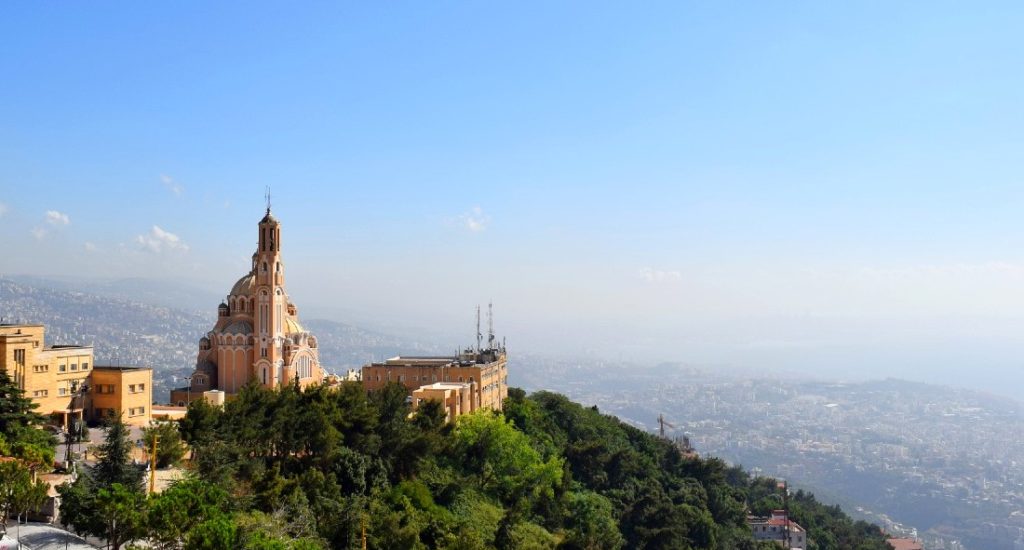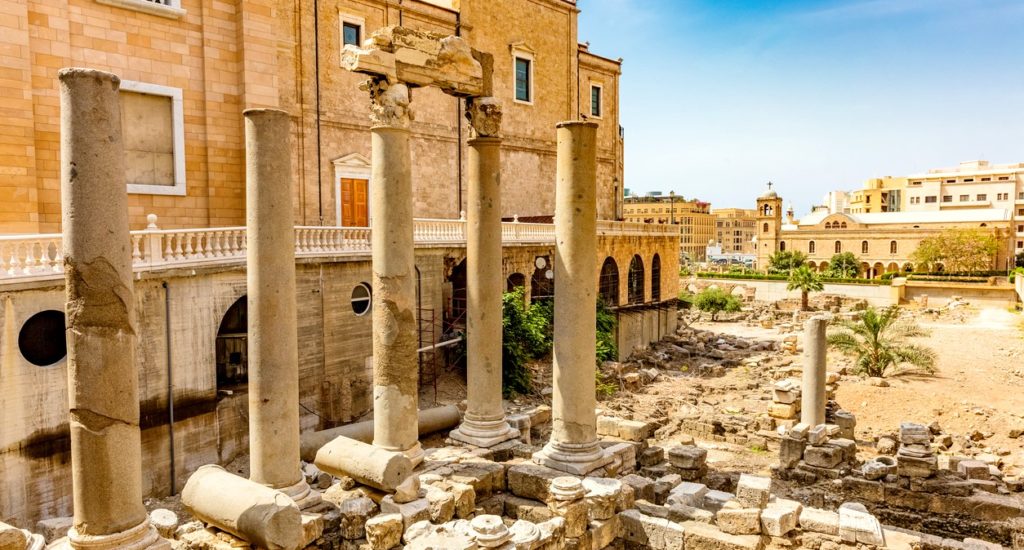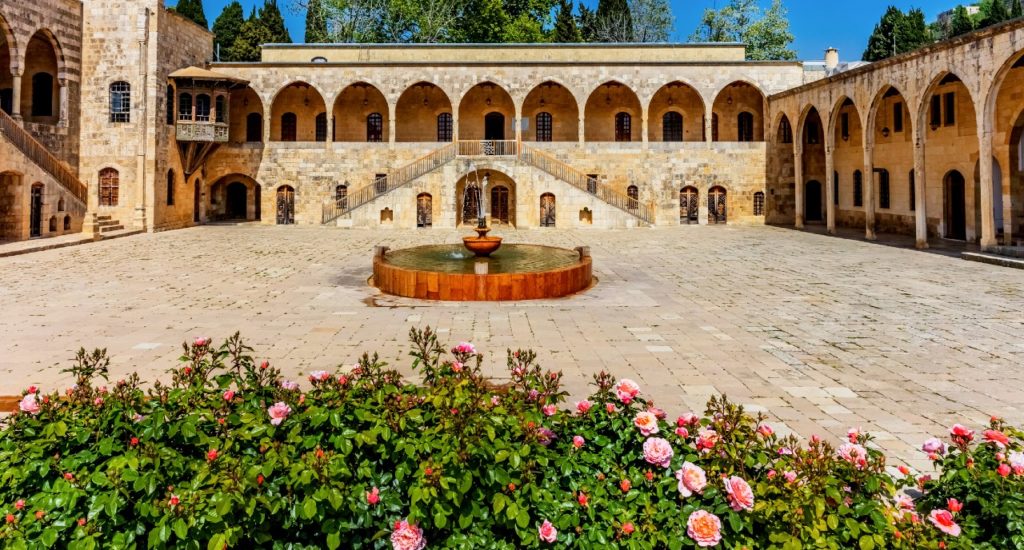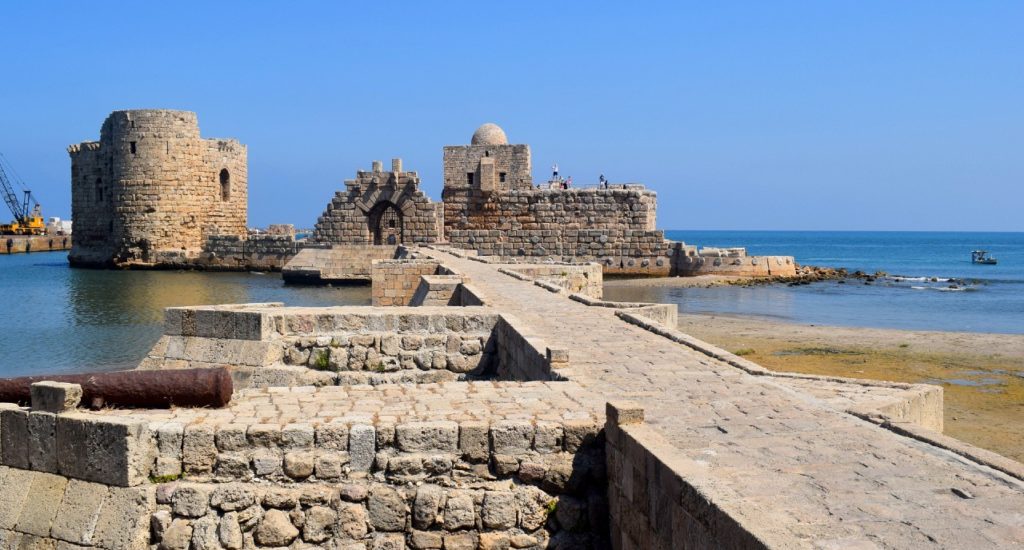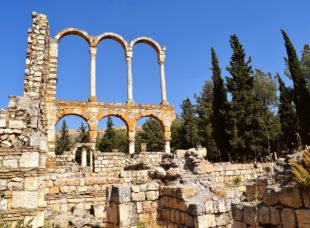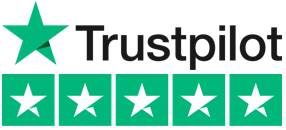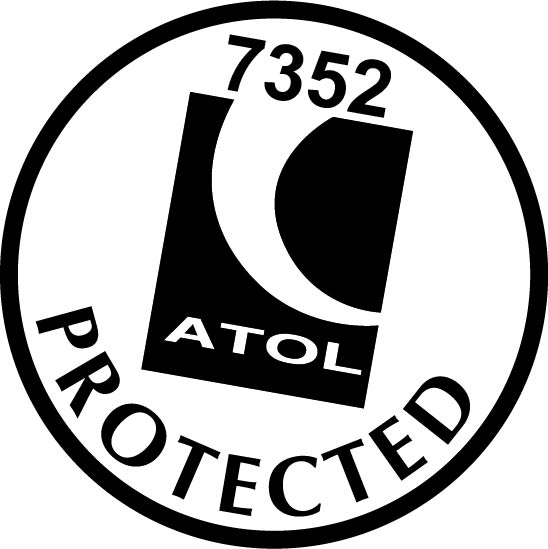Overview
With a turbulent reputation and devastating civil war that tore through the nation from 1975-1990, Lebanon has struggled to make a name for itself as a tourist destination. However, 2019 has seen the country open up and flourish more than it has done in decades, with the Foreign and Commonwealth Office (FCO) declaring the vast majority of sights safe to visit, and traditional guest houses and restaurants popping up all over the country. The Lebanese are a proud, welcoming, and warm breed, ready with open arms and excited for travellers to experience their rich and vibrant culture. What makes it especially easy to visit is its land mass; at half the size of Wales, it takes just a few hours to cross the country by car, so you can expect nice short journeys here between the country’s best highlights.
As a crossroads of civilisations for many centuries, remnants of opulent dynasties can be found everywhere, from colossal Roman ruins, Ottoman architecture, Druze palaces, and much more. The country is also home to no less than 18 religious sects, giving Lebanon a unique east-meets-west charm and it’s one of the most liberal nations in the Middle East. Mind-boggling valleys await nature lovers, sumptuous food and wine can be found at every turn, and national monuments are blissfully quiet and crowd-free. In short: Lebanon is the best place you’ve never thought to visit.
Safety
With a bit of a difficult past, safety may well cross your mind when visiting Lebanon. One of the first things to mention is that we as a tour operator cannot send anyone to a place that we feel is unsafe; it would be irresponsible of us to do so. Furthermore, we personally travel to the countries we sell, so you can rest assured that the person you speak to about your Lebanon trip will have been to Lebanon and travelled there thoroughly.
The FCO keeps a close eye on Lebanon, so this is the first port of call for the most up-to-date safety news. They show, and frequently update, a safety map outlining where you should and should not travel to in the country. As a tour operator it is our responsibility to check on this regularly and stay current on the country’s situation. Our team of agents on the ground in Lebanon are also on-hand for advice.
With several people in our small company having travelled to Lebanon, and fallen in love with it, it’s safe to say we have some in-depth knowledge on what you can expect here. In all of the destinations outlined on this website, you will feel not only safe, but warmly welcomed by the extremely friendly Lebanese people you’ll meet along the way on your trip.
Food & Drink
If you’ve heard nothing else about Lebanon, chances are you’ve at least heard of its cuisine. That’s no surprise when you think there are anywhere between 10 and 15 million Lebanese expats living around the globe, which of course means their culinary traditions have been able to spread far and wide for many years. Eating in Lebanon is considered a national sport, and every local you meet will talk about food with passion and vigour, insisting you try a range of dishes – most covered in lashings of yoghurt or za’atar (a herby spice blend) – while you’re in the country.
On most traditional menus you’ll find a range of hot and cold mezze dishes, worth diving into at least once or twice during your trip so you can taste a wide range of flavours. Invariably, you’ll see stuffed vine leaves, fresh and herby fattoush, minced lamb and bulgar kibbeh, an aubergine dip called moutabel, and tahini in pretty much everything. Flatbreads called manoushe are a staple for lunch, and skewers (shish tawouk) and meat-filled shawarma wraps can be found everywhere.
It’s easy to be vegetarian in Lebanon, with many meat-free dishes populating menus across the country, and veganism is also no foreign concept. Lebanon’s fertile land allows farmers to grow a great wealth of vegetables (visit Souk el Tayeb market in Beirut on a Saturday to discover seasonal produce) so it’s no one-trick pony either, meaning Lebanon’s exotic flavour pairings are inclusive of those who follow a plant-based diet.
With no less than 70 vineyards across the country, wine is also one of Lebanon’s prized products. The vast majority of these can be found in the Bekaa Valley, where the hot summers and snowy winters cultivate the finest grapes and winery visits are an imperative part of visiting the region. However, as the industry has been growing in the last few decades other vineyards have cropped up over the nation to champion blends from the North Lebanon and Mount Lebanon regions. This has encouraged Lebanon to produce not only typical red wine blends, but fine white and rose as well as sweet varieties, all of which you can try in almost any restaurant in the country.
When to Travel
Situated on the Mediterranean side of the Middle East, Lebanon enjoys a climate with four distinct seasons; the extremes being long hot summers between June and September, and cold, snowy winters from December to February. The best time to travel here is definitely in shoulder season – April to June, September to early November – when you can enjoy the endless days of sunshine without the crowds.
Lebanon is one of the few places in the Middle East where you can get away with visiting in the summer months of July and August, although if you struggle with heat travellers should be aware that temperatures in Beirut and the Bekaa Valley can climb into the mid-30s (°C) and it can be humid here too. Up in the mountains at Qadisha or the Chouf it’s cooler, a pleasant place to be in summer and not too hot to go touring and hiking.
On first glace it might seem like Lebanon is a good winter sun destination, but the country receives a lot of rainfall in these months and temperatures drop right down to minus figures in the mountains. Surprisingly to some, it’s actually a great destination for skiing and in some parts of Mount Lebanon and Qadisha. At this time of year you’d be forgiven for feeling like you’d stumbled into the depths of Switzerland as the countryside is dotted with pristine chalets and people zipping down the slopes!
Practicalities
Flights
Middle East Airlines fly twice daily direct from London Heathrow to Beirut, and we would choose this as our preferred option with excellent rates, top service, more choice for departures times (most notably an afternoon flight on your final day of the trip) and an efficient flight time of around four and a half hours. British Airways also flies once daily from Heathrow.
Indirect flights from other major airports such as Manchester, Edinburgh, and Birmingham can be found with carriers like Turkish Airlines, Lufthansa, and Air France are also possible, but typically more expensive than going direct from Heathrow.
Money & Tipping
The currencies used in Lebanon are the Lebanese pound (LBP, at time of writing in August 2019 £1 = 1,830 LBP) and US dollar. Both are accepted when paying for everything through the country, but you will usually receive your change in LBP even if you pay in USD so to save confusion sometimes it’s much easier just to stick to LBP.
ATMs can be found all over the country, and sites, larger shops, and restaurants are more than used to accepting credit or debit cards. It’s often difficult to find a bureau du change outside of the larger towns and cities, so we recommend changing cash in Beirut if needs be and otherwise taking local currency out at ATMs.
Tipping is becoming more and more wide-spread and although it is nowhere near as common as in other countries in the Middle East, it is expected for genuine services. For porterage at hotels we’d recommend around $2, around $5 for transfers to and from the airport, and if you have a tour with a driver then around $10-20 per day, all per couple. At restaurants the usual 10-15% on top of your bill is perfectly acceptable.
Visas
Due to the current Coronavirus outbreak across the world please check the latest summary, health and entry requirements on the FCO Travel Advice pages here: https://www.gov.uk/foreign-travel-advice.
Usual Advice: UK passport holders can obtain a free visa on arrival into Lebanon. Your passport should be valid for a minimum period of three months from the date of entry into Lebanon.
Note for travellers who have visited Israel: If your passport contains an Israeli stamp you may be refused entry to Lebanon. This policy also includes an exit/entry stamp from Jordan where you crossed the border between the two countries. The Lebanese authorities check every page of your passport before entering, so in our opinion even if they happen to miss that particular stamp, it’s not worth this risk. Once your passport is renewed and doesn’t contain these stamps, you will be allowed to travel as they do not carry out an electronic search.
Language
Arabic and French are spoken throughout Lebanon, but English is spoken by many people in the country too. If you have any French (or even Arabic!) under your belt it may help you along in the more remote places, but it’s no problem if not.
Health
As we’re not medical experts we feel it is essential you contact your G.P. regarding vaccinations and the like for travel to Lebanon. In addition to such vaccinations as you’d routinely have for living in the UK, further boosters are recommended for Hepatitis A, Tetanus and Typhoid.
The NHS has a great website called Fit for Travel, a platform providing specialist health information for travellers plus customised lists of travel medicines and vaccines for holiday makers, global adventure travellers and expeditions.
Dress code
Lebanon is not as conservative as other countries in the Middle East, so you can happily wear shorts, t-shirts, and vest tops in most destinations. When travelling where there are Muslim communities, such as Tripoli, Sidon, and Tyre, it’s best to wear longer layers such as shorts that are at least down to your knees and tops covering your shoulders. Full coverage, including hair scarves for women, is required when visiting any mosques, but the vast majority of these have robes you can use at the entrance, and if not your guide will let you know in advance when you will need to bring extra layers.
Travellers Code of Conduct
– We provide all of our clients with a “Travel Facts” document upon confirmation of your booking. This details useful facts and travel advice for your chosen destination, including restaurant recommendations, reading tips, basic language, cultural traditions, climate information and brief historical overviews. We feel that this offers a useful insight into the country you are visiting, and can help you interact with local residents in a more sensitive, well informed manner. Please try to take the time to read this information before your visit, if at all possible.
– A number of the countries in which we operate holidays are religious societies with a widely observed set of customs. Always respect these norms, particularly when visiting religious buildings.
– To the best of our knowledge, all of the hotels, lodges and camps within our portfolio operate stringent measures to minimise water usage. All of our destinations have issues with water supplies to a certain extent so feel free to raise any possible wastage should you encounter it during your stays, either with the accommodation or with us upon your return.
– Please ask before taking photographs of people, and respect their wishes should an individual not be happy to be photographed. We find that friendly requests and a smile are usually met with assent.
– Strive where possible to make your own contribution to environmental practices within the destination you are travelling. This might include minimising your electricity usage, avoiding smoking in protected areas, avoiding coral while snorkelling and safely disposing of all litter (recycling where possible).
– Where possible, try to purchase from local suppliers. This includes shopping for souvenirs, eating out in restaurants and booking further excursions during your free time. In areas where haggling is an accepted part of daily life, don’t become angry or offended if you are unable to obtain what you perceive as a fair price for an item. We emphasise to local suppliers that our clients should never be taken on unsolicited shopping trips, but if this does happen, try to retain your sense of humour, provide a firm refusal to participate and tell us about this on your return. We pass on all feedback from every trip undertaken with Holiday Architects to the relevant local suppliers, who share our commitment to travelling with sensitivity.
– Please don’t remove any indigenous items from their natural habitat and attempt to bring them back as a souvenir. This particularly applies to coral, shells, plants and food in the natural world, and to cultural artefacts and antiques.
– If you are unsure about anything relating to the above, please feel free to ask our local suppliers or your Holiday Architects specialist. All of these people either live or have travelled extensively in the country you are visiting and will be more than happy to offer their considered advice.


